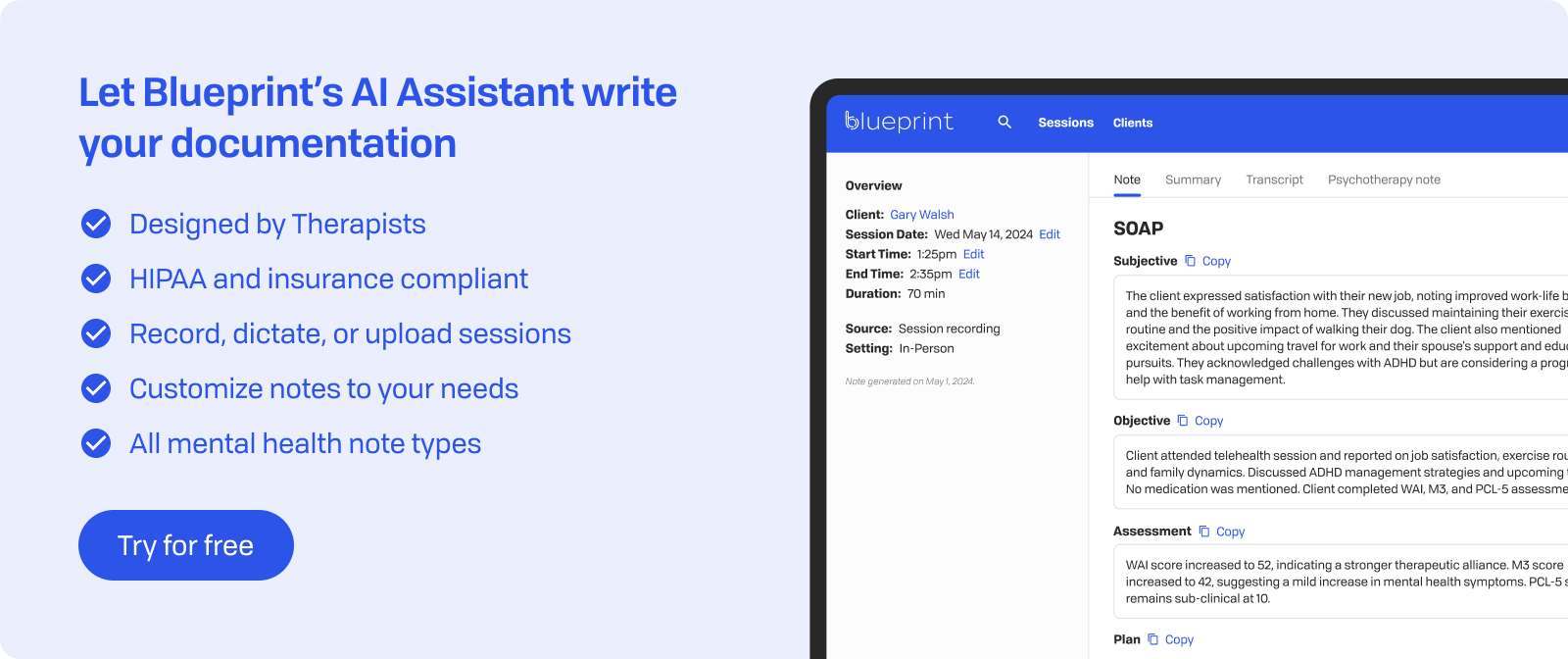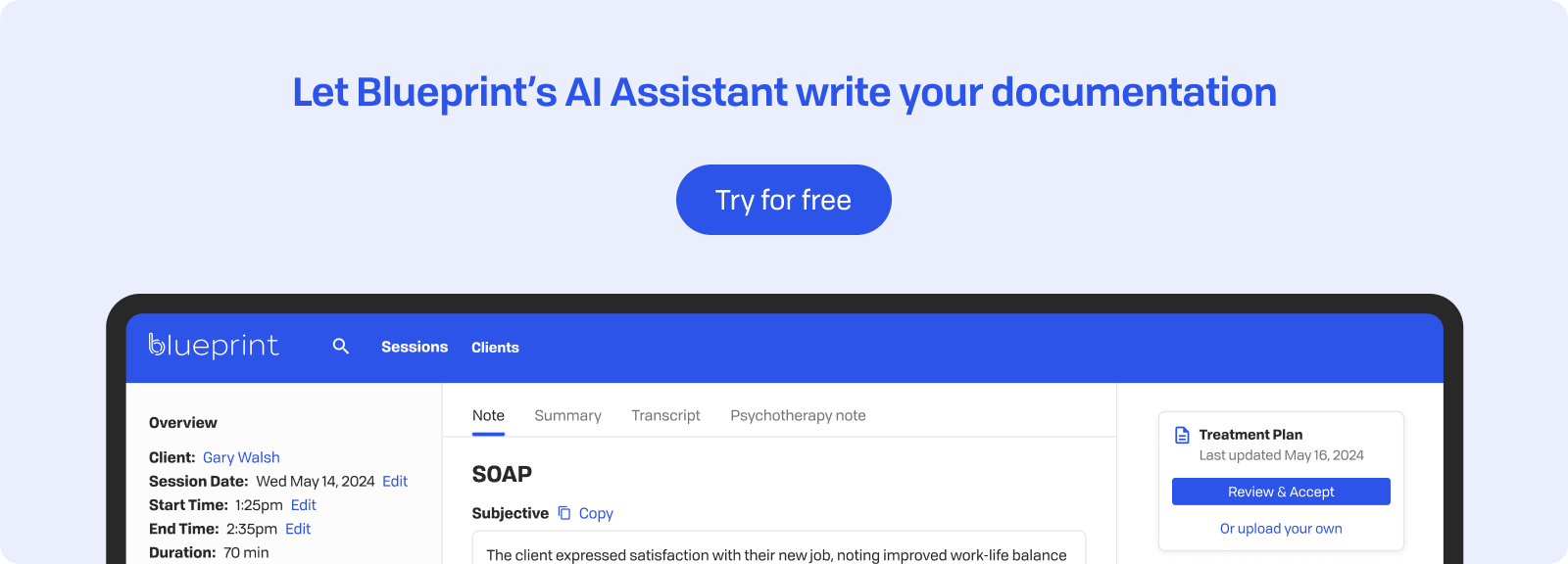In Brief
The path to becoming a Licensed Professional Counselor marks a significant milestone in a mental health professional's career. This journey turns years of education and supervised experience into the legal authority to practice independently. Navigating the requirements and maintaining your credentials may seem overwhelming, but breaking it down step by step makes the process manageable.
Whether you're just starting your graduate program or preparing for licensure exams, knowing what lies ahead helps you plan effectively. Each state has specific requirements, timelines, and regulations for the licensure process. The time and effort you invest pay off when you earn the right to practice independently and serve clients under your own professional judgment.
This guide explains the essential components of obtaining and maintaining an LPC license. From educational requirements to continuing education obligations, you'll gain clarity on what it takes to join the ranks of licensed counselors. Let's explore the key elements that shape this important professional credential.
Overview of LPC License
An LPC license is a state-issued credential that allows mental health professionals to practice independently. This credential reflects extensive education, supervised clinical experience, and successful examination performance. Once earned, it grants you the legal authority to diagnose mental health conditions, develop treatment plans, and provide therapeutic services without supervision.
The primary purpose of an LPC license goes beyond simply meeting legal requirements. It validates your clinical competency and confirms your eligibility to work with clients facing various mental health challenges. This validation provides assurance to clients, employers, and insurance companies that you've met rigorous professional standards.
Protecting the title is an important aspect of LPC licensure that often goes underappreciated. Only individuals who have completed all licensure requirements may legally use the title "Licensed Professional Counselor" or its state-specific variations. This protection maintains the integrity of the profession and helps clients identify qualified mental health providers.

Educational Requirements
Starting your journey to an LPC license involves earning a master's or doctoral degree in counseling or a closely related field. Most programs require 48-60 graduate credits, blending rigorous coursework with hands-on clinical training through internships and practicum experiences. These programs equip you to meet the academic standards necessary for licensure while developing important clinical skills.
Accreditation plays a significant role in your educational path. Many states require graduation from programs accredited by the Council for Accreditation of Counseling and Related Educational Programs (CACREP). This accreditation ensures your program meets profession-wide standards for quality and relevance, making the licensure process smoother in most places.
When selecting a graduate program, keep these key factors in mind:
- Programmatic accreditation: CACREP-accredited programs specifically endorse counseling degrees, indicating specialized quality and career preparation beyond basic institutional accreditation.
- Curriculum standards: Accredited programs must demonstrate faculty qualifications, comprehensive curriculum content, student support services, and quality clinical practicum opportunities.
- Specialization options: CACREP accredits various counseling specialties, including clinical mental health, school counseling, and addiction counseling.
- Licensure alignment: Graduating from an accredited program often streamlines state licensure eligibility and professional certification processes.
Your graduate program should include both theoretical foundations and practical application. Core coursework typically covers human development, counseling theories, group dynamics, assessment techniques, research methods, and ethics. The clinical components—internships and practicum experiences—provide supervised opportunities to apply classroom learning with real clients under qualified supervision.
Supervised Clinical Experience
After completing your graduate degree, the next important step involves accumulating supervised clinical hours. Each state has their own requirements, but ost states require between 2,000 and 4,000 post-degree hours before you can apply for full licensure. This experience typically spans about two to three years and offers the structured support necessary to transition from student to independent practitioner.
Your supervised hours must include both direct and indirect client services:
- Direct client contact: Typically involves around 1,500 hours of face-to-face counseling, group therapy, or assessment activities.
- Indirect service hours: Encompasses case documentation, treatment planning, consultation, and professional development activities.
- Supervision requirements: At least 100 hours of clinical supervision, usually with over 50 hours in individual supervision and the rest in group format.
Finding the right supervisor plays a key role in your professional growth. Your supervisor must have the appropriate credentials—usually a fully licensed mental health professional approved by your state board. They'll meet with you regularly (often weekly) to review cases, discuss clinical challenges, provide feedback on your therapeutic approach, and ensure you're meeting all documentation requirements.
Keeping proper documentation throughout this phase is very important. You'll need to maintain detailed logs of your clinical hours, supervision sessions, and client interactions. Your supervisor will submit evaluation forms to the licensing board at specific milestones—often after 1,500 and 3,000 total hours—assessing your competence in diagnosis, treatment planning, and ethical decision-making. These evaluations become part of your permanent licensure application, so maintaining accurate records and strong supervisory relationships directly affects your path to independent practice.

Examination Requirements
Completing a comprehensive examination marks the final academic step before obtaining your LPC license. Most states require passing either the National Counselor Examination (NCE) or the National Clinical Mental Health Counselor Examination (NCMHCE). These exams assess your understanding of counseling theories, ethical practices, and clinical skills developed throughout your education and supervised experience.
The NCE includes 200 multiple-choice questions covering eight core content areas:
- Professional Counseling Orientation and Ethical Practice (12%)
- Social and Cultural Diversity
- Human Growth and Development
- Career Development
- Counseling and Helping Relationships (30%)
- Group Counseling and Group Work
- Assessment and Testing (12%)
- Research and Program Evaluation
The NCMHCE uses a different format, presenting clinical simulations that evaluate your ability to make effective clinical decisions. You'll navigate case scenarios that demonstrate skills in information gathering, decision-making, and treatment planning.
Many states also require a jurisprudence exam that tests your knowledge of state-specific laws, regulations, and ethical codes. This exam ensures you are aware of the legal framework for counseling practice in your area, including mandatory reporting requirements, scope of practice limitations, and professional boundaries.
Effective preparation strategies include:
- Structured study plans: Focus on one or two content domains each week
- Practice exams: Build endurance with full-length timed tests
- Active learning: Use flashcards, mind maps, and comparison charts
- Study groups: Connect with peers who are preparing for the same exam
Most candidates spend 2-3 months preparing, though your timeline may vary based on how recently you completed your graduate program and how comfortable you are with standardized testing.

State Boards and Reciprocity
Licensure across state lines presents unique challenges for LPCs, as each state has its own licensing board with distinct requirements and regulations. These boards handle everything from initial applications to ongoing ethics compliance and scope of practice determinations. Knowing how states coordinate—or don't—affects your career mobility and practice options.
State variations include:
- Title differences: Many states use “Licensed Profressional Counselor (LPC), but some also use "Licensed Clinical Professional Counselor" (LCPC), Licensed Professional Clinical Counselor (LPCC), or "Licensed Mental Health Counselor" (LMHC)
- Hour requirements: Supervised experience ranges from 2,000 to 4,000 hours
- Examination preferences: States may require the NCE, NCMHCE, or both
- Educational standards: CACREP accreditation requirements vary by state
The Counseling Compact marks a significant change in interstate practice. This agreement allows LPCs licensed in participating states to obtain a "compact privilege" for practice in other member states without pursuing multiple licenses. Over 30 states have joined since it began, with more actively considering legislation.
Compact participation requires:
- Home state licensure: Full, unrestricted license in a compact member state
- Background clearance: FBI criminal background check
- Standard qualifications: Master's degree, supervised experience, and examination completion
- Good standing: No active disciplinary actions or restrictions
The Compact's centralized database, expected to be fully operational by late 2025, will track licensure and disciplinary actions across member states. This system maintains professional standards while reducing administrative barriers for counselors serving clients across state lines, particularly through telehealth services.

Post-Licensure Requirements
After earning your LPC license, you embark on a lifelong journey of professional development and ethical practice. States typically require license renewal every 1-2 years, with most mandating between 20-40 continuing education units (CEUs) per renewal cycle. These requirements help you stay updated with the latest therapeutic approaches, research findings, and regulatory changes impacting clinical practice.
You can find quality continuing education opportunities through several key resources:
- State licensing boards: These serve as your primary source for approved CE providers and specific requirements, including mandatory topics like ethics, suicide prevention, or domestic violence assessment.
- Professional associations: Organizations such as the American Counseling Association offer a variety of webinars, conferences, and online courses that meet state requirements.
- Online CE platforms: Specialized providers offer flexible, self-paced courses covering clinical skills, theoretical approaches, and specialty areas.
- Graduate programs: Many universities provide post-licensure certificates and advanced training programs that count toward CE requirements.
Beyond continuing education, maintaining your license involves several ongoing responsibilities. Most states require periodic background checks—often at renewal—to ensure you uphold the ethical standards expected of licensed professionals. You must also follow your state's code of ethics and professional standards, which cover confidentiality, dual relationships, record-keeping, and mandatory reporting obligations.
License maintenance also includes keeping accurate records of your CE completion certificates, maintaining professional liability insurance, and promptly reporting any changes in contact information or practice settings to your state board. Some states require additional attestations about criminal history, malpractice claims, or disciplinary actions in other jurisdictions. Staying organized with these administrative tasks prevents renewal delays and ensures uninterrupted practice authorization.
Key Takeaways
Working towards LPC licensure requires dedication across different areas. You'll need to complete a master's degree (typically 48-60 credits), gather 2,000-4,000 hours of supervised clinical experience, and pass comprehensive examinations. These foundational requirements prepare professionals to deliver ethical, evidence-based mental health services.
State-specific differences significantly affect your licensure path and ongoing practice:
- Educational standards: Some states require CACREP-accredited programs while others accept equivalent coursework.
- Supervision requirements: Hours range from 2,000 to 4,000 with varying direct client contact ratios.
- Examination choices: States differ in accepting the NCE, NCMHCE, or requiring both.
- Renewal cycles: CE requirements typically range from 20-40 hours every 1-2 years.
Maintaining your license involves more than just the initial certification. Continuing education requirements keep you updated with new therapeutic approaches, research findings, and ethical standards. This ongoing education directly benefits your clients by improving treatment quality and ensures you remain legally authorized to practice.
Your LPC license represents more than just following regulations—it shows your dedication to professional excellence. The credential provides legal protection for your practice rights, builds credibility with clients and insurance providers, and connects you to a professional community committed to mental health advocacy. Regular involvement in professional development opportunities, whether through conferences, specialized training, or peer consultation, strengthens both your clinical skills and the broader counseling profession.
Investing in obtaining and maintaining your LPC license pays off throughout your career, opening doors to independent practice, specialized certifications, and leadership opportunities within the mental health field.










